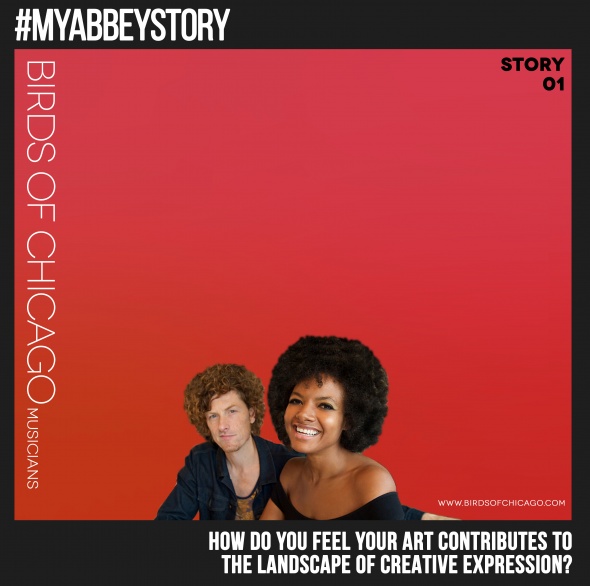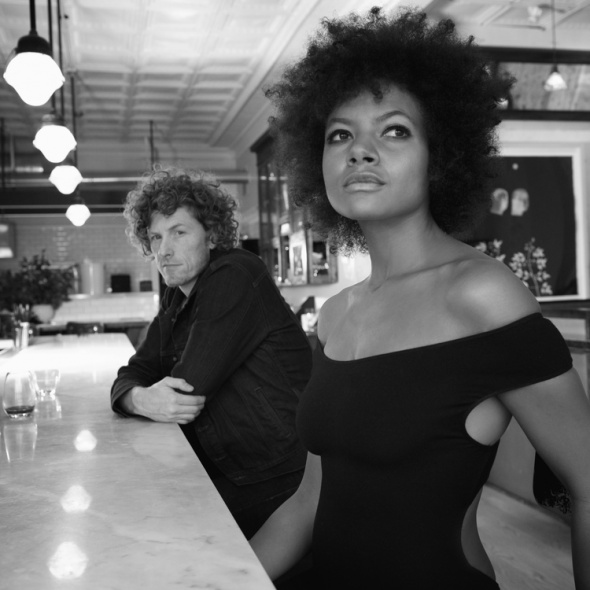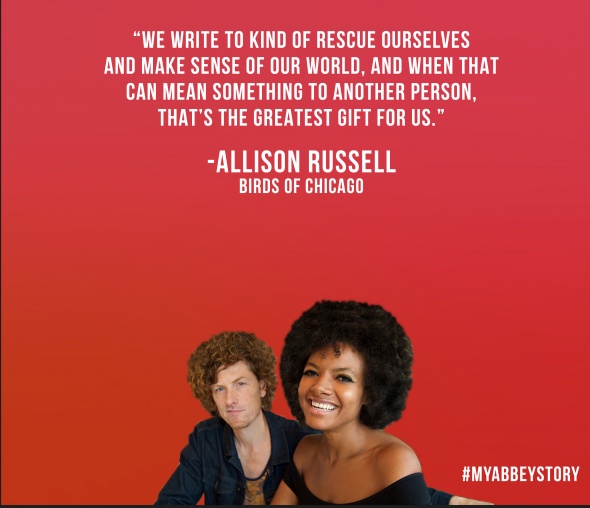SUPPORT


 EVENTS
EVENTS
 CLASSES
CLASSES
 RENT
RENT
 ABOUT
ABOUT


Stephon Dorsey (SD): How do you feel your art contributes the landscape of creative expression?
JT Nero (JT): I think for us writing songs and singing them is kind of our life raft. It’s how we deal with all of the difficulties, pains, and trials of living in this world day to day— its our daily rescue. Everybody goes through the same things. We don’t really have any experiences that are alien to anyone else, so hopefully our process of sharing these experiences can be a bit of a rescue for other people as well.
Allison Russell (AR): Yeah, I agree. We make art because we have a compulsion to do it, so it’s the greatest gift when other people say that it has some kind meaning for them. We had a woman write to us who went through a very intense childbirth and apparently one of our songs, Til It’s Gone, she made her partner play on repeat, and that helped her. something like that is such a gift to us because even we — as JT said — we write to kind of rescue ourselves and make sense of our world, and when that can mean something to another person, that’s the greatest gift for us.
JT: Yeah, it’s that basic connection.
AR: That’s our communion, that’s our church. Sharing music with people and feeling that energy coming back, like tonight, which was so magical. The people who come here are so open to sharing an experience. Our friend Raina Rose who was playing with us tonight, talked about the gift of someone really listening and connecting — it’s so rare.
JT: Part of the art is the people who come, but it’s also the space that is created. Buildings and communities have sympathetic souls.
AR: …and are child friendly!
(Laughs)
JT: For that kind of interaction to take place, a special sort of space has to be created. It just doesn’t materialize magically, so creating that space is very much a labor of love, so we’re definitely appreciative of the work that goes in that allows this space to be.
AR: We’re also appreciative of all the toys in the green room.
(Laughs)
SD: Ha, Yes!
(More laughter, brief comments.)

JT Nero (left) and Allison Russell (right) of Birds of Chicago by Natalie Ginelle Miller
SD: I was going to ask you guys to describe your Abbey experience, but that sort of came in the last response — so I guess now, my question is what does the future look like for you guys, I mean of course you wouldn’t know explicitly, but what are you guys putting into the universe, I guess, and hoping to receive in return?
AR: Hm I guess, what’s our goals?
JT: Yeah. This is our daily bread, you know? There are certain aspects of being in the music industry that are very much beyond your control, and — I guess this is sort of a Zen exercise — you control the things that you can control, and that is meaningful on a daily level no matter what and that’s exactly what happened here tonight. It’s our responsibility to get back to an energy place where we can recreate that tomorrow night in the next town and have that serious kind of communion with a new group of people.
AR: And it’s so different from space to space and town to town.
JT: Yeah, with a new group of people — and I’ll tell you that’s why we don’t take spaces like this for granted because they’re nights when —
AR: It’s very hard going (laughs).
SD: Yeah..I definitely understand.
JT: So you have to battle that much more to get to that place where you can have that exchange.
AR: We don’t take the Fremont Abbey for granted at all. It’s a really unique and beautiful place.
JT: Yes, and everyday is a new slate, and that’s one of the things that attracts us to this vocation. You have this experience, and it’s meaningful, but then you have to do it again. You have start fresh, and it’s work to get back to that place.
AR: We’re hooked on that.
SD: Nice — thank you. Blessings to you guys.
